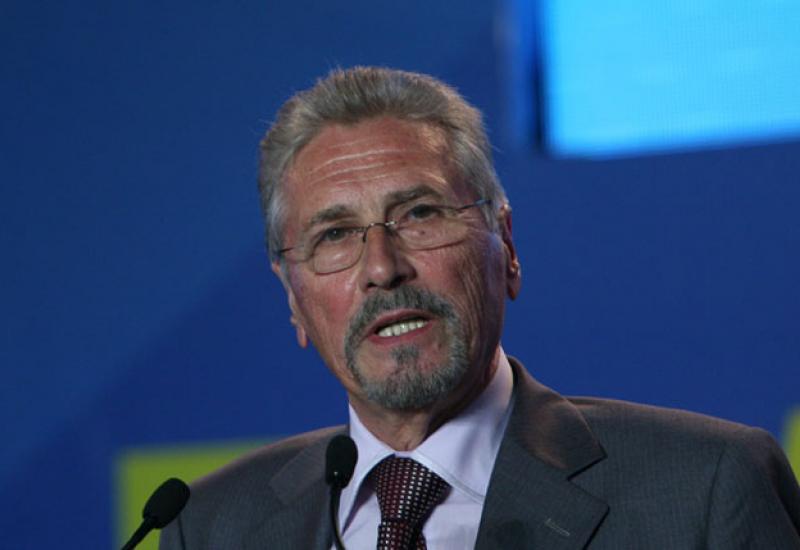Thomas Friedman, a journalist of the newspaper "New York Times", visited India to study the phenomenon of a new generation of Indian programmers. A young programmer with the help of Internet has shown the possibility of establishing competitive small companies all over the world, he said: "The surface is flat now." The book "Flat World", which was written from this life experience has brought Thomas Friedman Pulitzer Prize and became world famous work.
This book doesn’t tell us how it seems at first glance about more or less probable future but about the present day, which many of us don’t pay much attention to. Those who had chosen the motto "The center is everywhere" for the French TV channel “TV 5 Le monde admitted this idea. It is not an accident, as the transnational media is equally representative element of globalization and the information society. Internet is also a means for new contacts that neglect geography, but are available to those who have the ability and skills to use them.
I want to share with you my own Indian experience. In 1997, on my way home from a summit of the francophonie, held in Hanoi, I stopped in New Delhi. The President of India, educated and wise old man told me about the campaign for the promotion of satellite TV, which was brought to India by one American company. Using helicopters, they reached the isolated settlements in the jungle, where people were not aware that behind the surrounding mountains, there is something else in the world except animals against which they learned how to fight and survive together. A helicopter, television and people who arrived were considered divine manifestations. In fact it was the only possible interpretation of differences regarding millennia of civilization. Thus, the so-called flat modernity has deep gaps. The Indian parable about five blind man that were touching different parts of the body of an elephant (legs, trunk, tusks, belly and tail), talked about the different creatures. It’s adequate reflection of the reality that shocked me in many of my trips around the world, where I traveled often as a geologist and researcher.
That is why I believe that the long road to global solidarity, which is the highest form of freedom, must begin from each nation, the local community or even family where we can find many conflicts which we describe as a conflict between North and South, West and East. Human vulnerability to natural disasters such as the tsunami or hurricane Katrina, which dramatically affected the beginning of the third century was not too different in Southeast Asia and the USA as it might seem based on stereotypes about these countries. International solidarity has been impressive, firstly as human feeling and consent of the USA to receive international assistance gave America a more human face and did not hurt its image.
The approach to globalization as egalitarian force in a negative sense in which it is discussed today is not productive. Technology imperialism, establishing consumer culture or English as opposed to cultural diversity and national identity is becoming true. But just as real is the prospect of equality of chances, which opens today, especially for young generation, which in Romania will be the first user of professional mobility in the labor market after the integration of Romania to European Union.
Globalization has opened a market without borders in education. However, we must go immediately to the statutory changes and constituent reforms in education. If mobility is a canopy of trees and their roots are a network of domestic and transnational institutions tree trunk must consist of new strategic organization of knowledge. Globalization has offered communications infrastructure, in which space and time lost their meaning. The dual role of education and labor should operate based on two concepts: education and lifelong subject diversity. A subject diversity hasn’t got freedom from the tyranny of the caste spirit disciplines and research institutes. The decision could have an offer for the younger generation that would not allow him to choose between names of subjects, but between occupations, professions offering horizon, where objects are replaced by a format that allows you choose their own route, which would have created an individual biography. In this format teachers should become guardians or examples rather than just carriers of knowledge. You must create a system of education and research field of new playing fields and new players. Managers must manage interaction. Organizational areas have changed in the context in which the battle for talent management becomes a science.
A world without borders in education requires, as I said, rethinking the role of institutions. It is necessary to prepare graduates with global competence, which would be able to act based on religious, technological, cultural and environmental features. We should not forget that globalization is caused by problems. Global problems require global answers. «Global versus local» is not defined in the geographical sense, but a way of thinking and action means adapted to certain local problems with global implications. Globalization cannot be considered as only Western product. Private Sioux technology really benefits because of Western scientific focus of producing the West and some old cognitive gaps. Globalization is the answer to global problems, forcing Western technology to take into account local peculiarities and work on global solutions.
In order to build a new concept of world globalization, we should be able to consider and evaluate the ethnos of globalization and evaluate globalization not from a technological point of view but from its anthropological aspects.

